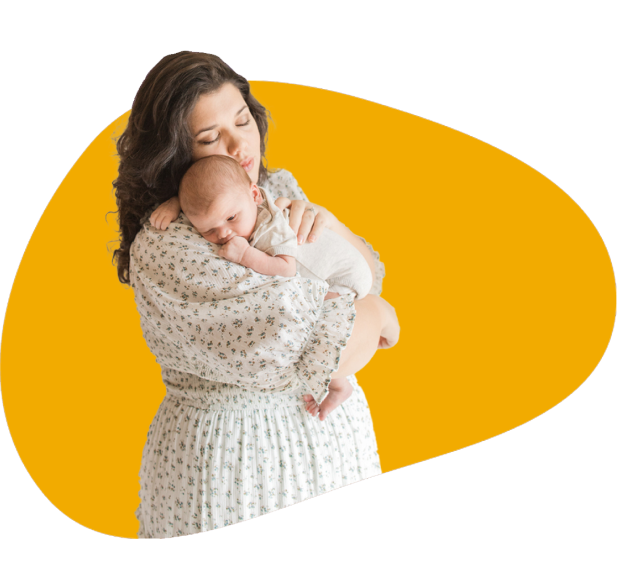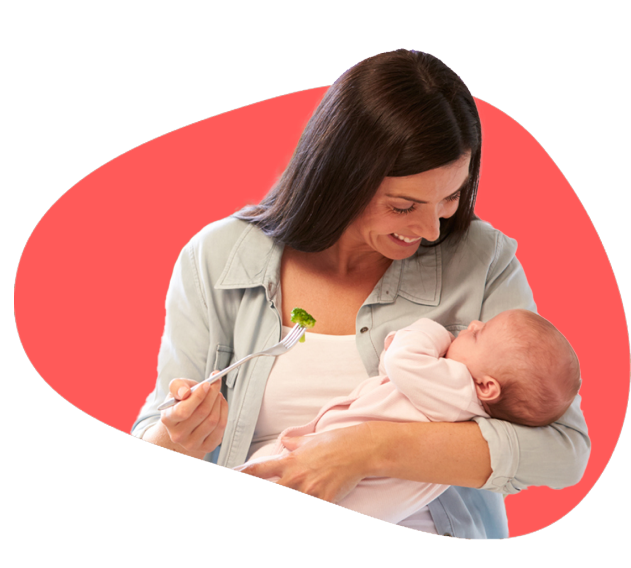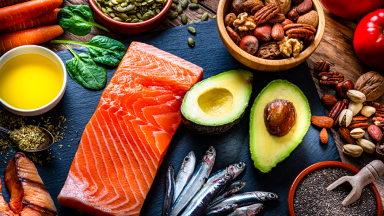Postpartum care is an essential part of the recovery process for new mothers. The physical and emotional demands of childbirth can be overwhelming, so women must give themselves all the support they need to get back on their feet. That’s why postpartum dietitians are a valuable source of help for any woman seeking health advice during this period.
What is Postpartum?
For many women, giving birth marks the start of a beautiful journey into motherhood – but it also takes its toll physically, emotionally, and nutritionally. During pregnancy, your body has been growing another human being inside you! It’s only natural that after such an enormous effort, your body needs some time to recover.
Standard medical practice is six weeks for postpartum recovery, but you should be self-aware and take as long as your body needs. Every person’s body is different, and there is no set time frame for how long your body will need to recover.
It is important to nourish your body as it heals and rebounds while being patient and kind to yourself. You just created life and then gave that life to the world after nine months – taking the time to heal and adjust to all the changes around you, with your body and mind, is crucial.
Take the time YOUR body and mental health need.


Is Nutrition Included In Postpartum Care?
Postpartum care is an essential part of the healing process for new mothers. Nutrition is key in helping postpartum recovery and minimizing long-term health risks. A postpartum diet should focus on nutrient-rich foods that can provide:
- Energy
- Support milk production
- Boost immunity
- Reduce postpartum depression symptoms
- Aid in postpartum health
During this time, various nutrients are essential to proper nutrition.
| Nutrition Food Group | Examples |
|---|---|
| Lean protein sources | Fish, chicken, turkey |
| Complex carbohydrates | Whole grains like brown rice, quinoa, whole wheat bread |
| Healthy fats | Olive oil, nuts (almonds, walnuts, cashews), fish |
| Vitamins | B12, Calcium (found in dairy products, leafy greens, fortified plant milk) |
| Minerals | Magnesium (found in nuts, whole grains, and leafy greens) |
| Fruits & Veggies | Berries, citrus fruits, broccoli, squash, leafy greens |
Importance of Nutrition for Nursing Moms
As a nursing mom, your body has unique nutritional requirements. The food you consume fuels your well-being and directly impacts your breast milk, which is your baby’s primary source of nourishment. Optimal nutrition supports your energy levels, promotes postpartum healing, and contributes to the healthy development of your little one.


How Long Do You Need To Recover After Giving Birth?
Recovering after giving birth is a unique and personal journey for each woman. While the physical healing process varies from person to person, allowing yourself a minimum of six weeks for postpartum recovery is generally recommended. However, it’s important to note that this timeline can differ depending on various factors, including the type of delivery (vaginal or cesarean), complications during childbirth, overall health, and individual circumstances.
Apart from the physical aspects, it’s crucial to acknowledge the emotional and psychological recovery after giving birth. The postpartum period can bring about a range of emotions, including joy, exhaustion, anxiety, and mood swings. Hormonal changes, sleep deprivation, and adjusting to new responsibilities can contribute to these feelings.
It’s essential to seek support from loved ones, communicate your emotions, and prioritize self-care during this time. Connect with other new moms, join support groups, or consider speaking with a healthcare professional if you experience symptoms of postpartum depression or anxiety.
| What You Should Do | What You Should Not Do |
|---|---|
| Get plenty of rest & exercise lightly | Engage in strenuous activity or heavy lifting |
| Take time for yourself and seek support from friends & family | Ignore signs of postpartum depression treatments |
| Follow a balanced diet | Neglect proper nutrition |
| Drink lots of water | Exercise excessively or overdo it with diets |
Why Postpartum Nutrition Is Important?
A balanced diet can help women to manage symptoms related to postpartum depression, as well as prevent weight gain in the weeks following childbirth. Eating nutrient-rich foods such as fruits and vegetables, lean proteins, whole grains, and healthy fats will give a new mother the energy she needs while allowing her body to heal after giving birth.
Weight loss during pregnancy is normal, but many mothers find it difficult to lose their baby weight afterward – which is okay! Nutrition guidance and support can be effective in postpartum care to ensure your body gets all the necessary nutrients and calories.
Postnatal exercise also plays an integral role; however, the process may be slower without adequate nourishment. Proper nutrition should always take priority over physical activity alone.


Postpartum Depression and Diet
Postpartum depression is a common but serious mental health condition that can affect new mothers. 1 in 5 women suffer are estimated to suffer from postpartum depression after giving birth, and its symptoms include feelings of sadness, anxiety, irritability, exhaustion, and difficulty bonding with the baby. Postpartum depression can be difficult for a mother to recognize as she may feel overwhelmed by her new responsibilities or have difficulty expressing her emotions.
Treatment options for postpartum depression vary depending on the severity of the case. Help can come in many forms, including medication, psychotherapy or counseling, and lifestyle adjustments such as getting more rest or exercise.
Support groups can also prove invaluable for those looking for guidance through their journey of postpartum care. With professional treatment plans tailored to each individual’s needs combined with social support networks, sufferers of postpartum depression can make positive steps towards managing their mental well-being and improving their quality of life.
Postpartum care is a vital part of the recovery process for new and expecting mothers. Eating well during this period can help with symptoms like postpartum constipation, hives, and fatigue. Here are some recommendations that may fit into your postpartum lifestyle:

Start by adding healthy fats such as avocados, nuts, and seeds to salads or sandwiches. You can also try cooking up salmon and other fatty fish for a nutrient-rich meal. For snacks, opt for fresh fruits or vegetables over processed foods. Taking multivitamins or extra calcium supplements will be beneficial too.

When exercising, start slow with simple activities such as walking or stretching. Wearing leggings explicitly designed for postpartum bodies might make you feel more comfortable while exercising too! Working out at home can be a great way to get moving without leaving your house; just create a safe environment to focus on yourself and follow an online workout plan tailored to your needs.

Finally, take time each day to relax and unwind – whether doing yoga, going for a massage, reading a book, or simply taking five minutes to sit down and breathe deeply. Listening to your body’s cues is important to properly heal from childbirth before returning to regular activity mode.
Postpartum Support With A Dietitian
The right postpartum diet plan can help you regain your pre-pregnancy lifestyle faster and manage conditions such as postpartum depression, night sweats, and acne. Partnering with Dietitian Group is an excellent way to receive nutritional support after a baby. Here are some benefits:
- You will have access to qualified professionals who understand the unique demands of new motherhood.
- You can connect with other moms in similar situations, allowing for emotional bonding and understanding.
- A dietitian will create a customized meal plan considering your needs.
Dietitian Group can also provide helpful tips about lifestyle changes needed for successful postpartum care, like incorporating more yoga or relaxation techniques into your daily routine. Additionally, we can provide education on proper nutrition during breastfeeding so you can ensure you are getting all the nutrients necessary for both yourself and your baby. Finally, being part of a supportive community allows you to draw strength from each other when feeling overwhelmed by the demands of life with a newborn.

Postpartum Dietitian Scheduling
No matter how much you prepare before having a baby, there’s no escaping from the fact that recovering after childbirth is hard work – physically, mentally, and emotionally. But understanding what postpartum nutrition involves and taking advantage of the support available from the Dietitian Group and our dietitians can help you through this journey. Schedule with our Postpartum Dietitian today.